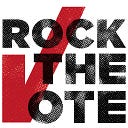How to Make the Most out of Town Halls
By Jimmy Dahman, Town Hall Project
As we’ve clearly seen, it’s incredibly important for us to speak truth to power to Congress on the issues that matter most to us. Besides attending rallies or making phone calls, now more than ever, we must also leverage our opportunities during Congressional recesses (or “Congressional work periods,” when members work in their district) to speak up and demand answers at our local town halls.
What’s a Town Hall?
Since members of Congress spend so much time in Washington D.C., town halls are scheduled in their home districts in order for constituents to directly interact with their elected officials.
At town halls, elected officials meet face-to-face with constituents to answer questions, listen to concerns, and engage in an important dialogue without requiring a campaign donation or a trip to Washington D.C. Town halls help to make government more accessible to voters and those of us who aren’t members of a powerful lobby or interest group.
While elected officials use resources like polling or surveys, town halls are also an extremely important influence when it comes to policy decisions. They provide the opportunity for constituents to better hold members of Congress accountable.
How to Engage at a Town Hall
First, be yourself. The most powerful tool you have is your personal story. Statistics and data are important, but you’re the expert in your life. Share how decisions made in Washington will directly affect you, your family, and your community. Keep speaking out. Your voice is way more effective in influencing your representative when it’s authentic, and it will mean they hear diverse perspectives.
Second, be confident. When asking questions, make them succinct, direct, and clear. If you ask a multi- part question, your representative can just answer the easiest of the bunch. If you ask an open-ended question, they can retreat to talking points and vague platitudes. Instead of asking, “How do you feel about healthcare reform?” it can be more effective to ask, “Will you commit to opposing any legislation that reduces coverage, yes or no?” This way you can pin them down to a position, and follow up to demand a simple yes or no answer.
Last, be respectful. Be respectful of other attendees, and to your elected official when they are answering questions. Keep in mind that these topics are personal and can lead to intense debate, but these conversations are also more effective when the dialogue remains civil. Never cross the line into bullying, intimidation, or threats — besides being wrong, this is highly counter-productive.
What if My Member of Congress Isn’t Holding Town Halls?
At Town Hall Project, we recently released our Missing Member Report, highlighting members of Congress that have not yet held public events in 2017. The results of the report were fascinating: 54% of Republican members of Congress have yet to hold a town hall versus just 11% of Democrats, and the total number of members holding events has fallen significantly in the last two months.
What can you do about it?
· Call your representative. Ask them if they have any future events scheduled, and if not, why.
· Organize your friends and neighbors to show up at a district office in-person.
· Hold your own town hall for your member of Congress and invite them! When constituents show up to discuss national issues, their absentee representative can either show up to answer questions or risk the negative headlines and optics of “Empty Chair” town halls.
· Get creative! Start a social media campaign or build a creative protest that can draw press attention.
Search townhallproject.com to find Empty Chair events near you, or reach out to other Rock the Vote followers near you to organize one.
Why Does Youth Participation Matter?
At town halls, people engage with elected officials on the issues that matter to them, and the most active generation of voters and town hall attendees gets the most attention from Congress.
People showing up now might not be pressing issues important to us like climate change, the cost of education, and criminal justice reform.
Never forget, your lawmakers work for you. You are their boss. But democracy is not a spectator sport. It’s time for us to get in the game.
